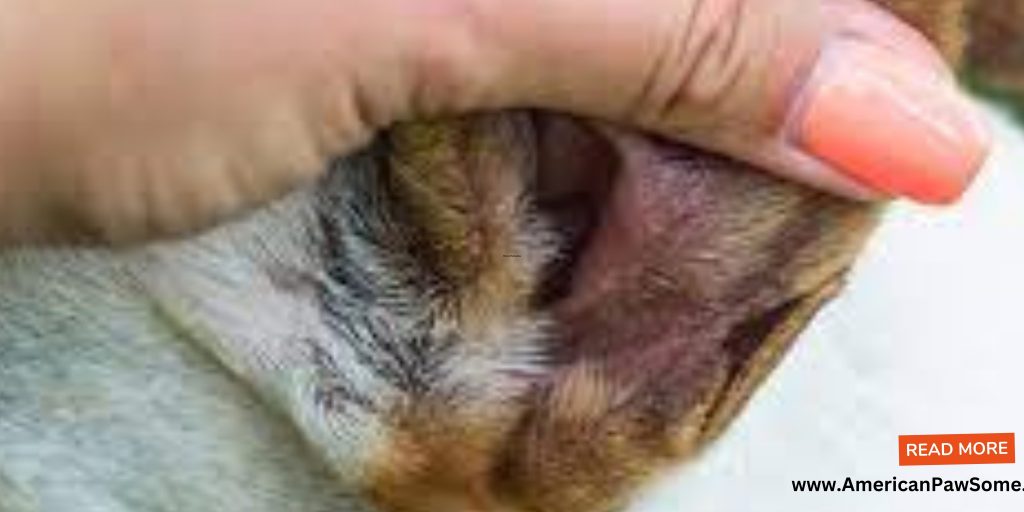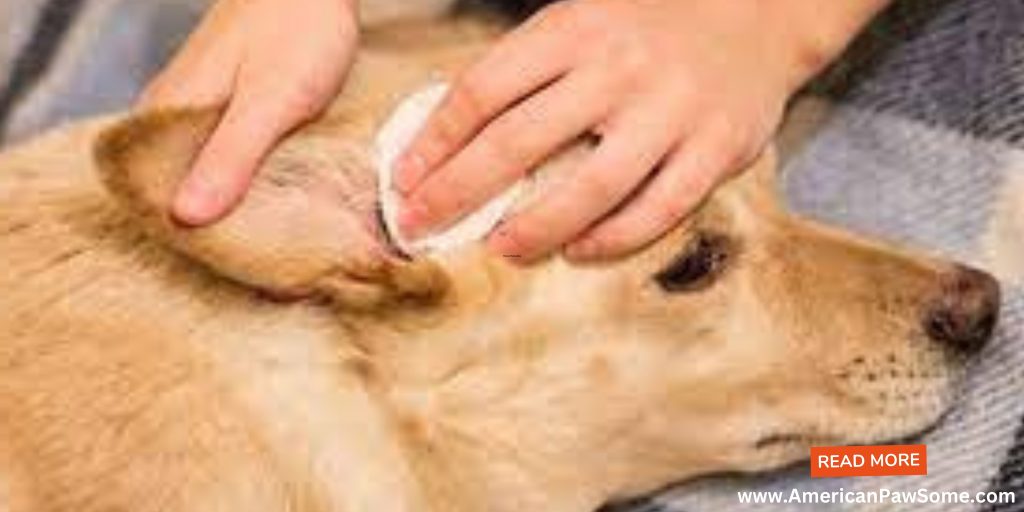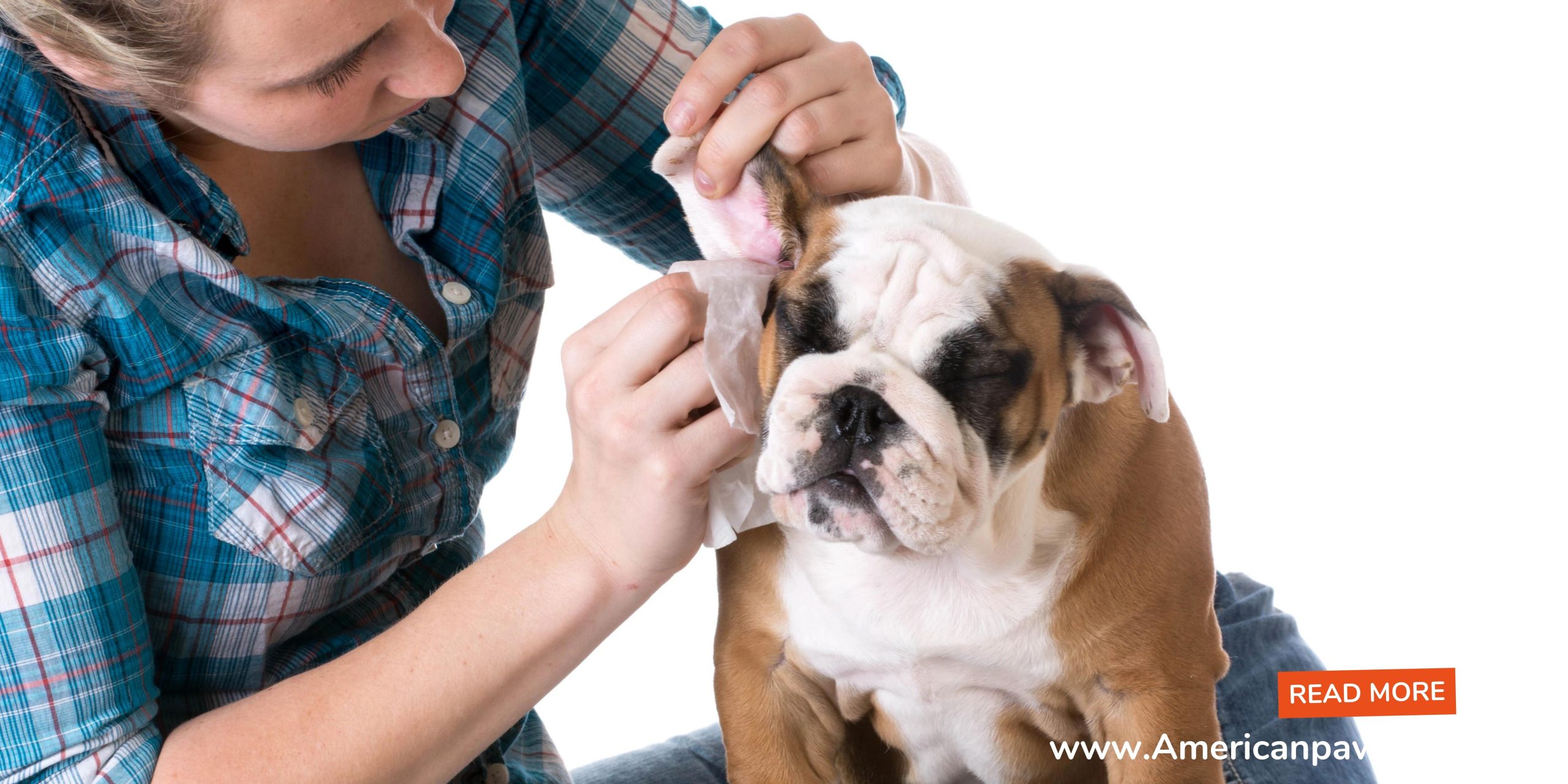When our furry pals start facing ear troubles, it’s a concern that strikes close to the heart. But don’t fret too much—there’s a lot you can do right from home to lend a helping paw. Ear infections in dogs, just like with us, can be addressed with some DIY care, especially for those milder cases. We’ll also delve into why these pesky infections pop up, the telltale signs, and smart strategies to prevent them from making a return appearance.
Cracking the Code of Dog Ear Infections

When your furry buddy’s ears start acting up, they might be dealing with a common issue called canine otitis. This is a bit like uninvited guests (bacteria, yeast, or other microorganisms) deciding to have a party in your dog’s ear canal. Certain dogs, especially the ones with floppy ears or who fancy a swim now and then, seem to be more prone to these ear infections.
Spotting the Clues

Before you dive into home treatment mode, make sure you’ve got the right diagnosis—sometimes, those symptoms might hint at something else. Keep an eye out for these telltale signs:
- Scratchy Business: If your furry friend is on an itching spree, scratching their ears or rubbing them on furniture, it’s a surefire sign that something’s amiss.
- Odor Alert: Whiffing an unpleasant odor coming from your dog’s ears? That’s a red flag indicating an infection might be in play.
- Head Games: Is your dog tilting their head or shaking it a tad too much? This could be their way of signaling ear discomfort.
- Seeing Red: Swollen, reddish ears with gooey stuff around them? That’s a clear indication that it’s time for some ear TLC.
Your Home Arsenal for Easing Ear Woes

- Now that you’re armed with the symptoms, here’s a step-by-step playbook for dealing with your dog’s ear infection from the home front. But remember, always loop in your vet before you launch into action:
- Gentle Cleaning Dance:
Start by gently swabbing your dog’s ears with a vet-recommended ear-cleaning solution. Skip the swabs—instead, go for a soft cloth or cotton ball to clear out the dirt and excess moisture.
- Nature’s Remedy Nudge:
Nature might just hold the secret to soothing those ears. Mix water and organic apple cider vinegar in equal parts and use it as an ear rinse. Before you whip this up, though, have a chat with your vet to make sure it’s a good move.
- Tapping into Med Mode:
Should your vet hand you ear drops or ointments armed with antibiotics, antifungals, or steroids, make sure you’re following their game plan to the T.
- Locking Out Future Trouble:
The best way to deal with ear infections is by stopping them in their tracks. After water escapades or baths, make sure your dog’s ears are completely dry. Also, give any excess hair around their ears a trim—it aids in airflow and keeps moisture at bay.
- Playing the Patience Card:
Keep a close watch on the situation. If things don’t seem to be on the mend or they’re taking a turn for the worse, don’t hesitate to ping your vet. Remember, a lingering or untreated ear infection could potentially lead to bigger problems down the line.
FAQs About Treating Your Dog’s Ear Infection at Home
Can I use regular cotton swabs to clean my dog’s ears?
No, it’s not recommended to use regular cotton swabs as they can push debris further into the ear canal. Opt for soft cloths or cotton balls to gently clean your dog’s ears.
My dog’s ears have a strong odor. Could it be an infection?
Yes, a foul odor coming from your dog’s ears could be a sign of an ear infection.
Can I use over-the-counter ear drops for my dog’s infection?
It’s best to consult your vet before using any medication. Over-the-counter products might not be suitable for your dog’s specific condition and could worsen the situation.
Is apple cider vinegar safe for my dog’s ears?
While some pet owners use a mixture of water and organic apple cider vinegar as an ear rinse, it’s important to check with your vet before trying this remedy to ensure it’s appropriate for your dog’s situation.
How often should I clean my dog’s ears?
Cleaning frequency depends on your dog’s breed, activities, and overall health. Generally, it’s best to follow your vet’s advice on how often to clean your dog’s ears to prevent overcleaning, which can lead to irritation.
My dog’s ear infection doesn’t seem to be improving with home treatment. What should I do to prevent it?
If you’ve been following the home treatment guidelines and haven’t seen improvement within a few days, it’s time to consult your vet. Prolonged or untreated infections can lead to more serious issues.
Can I prevent ear infections in my dog?
Keep your dog’s ears dry, trim excess hair around the ears, and avoid exposing them to excess moisture, especially after baths or swimming.
Are certain dog breeds more prone to ear infections?
Yes, dogs with floppy ears, such as Cocker Spaniels and Basset Hounds, are more susceptible due to reduced airflow. Breeds that love water, like Retrievers, can also be at a higher risk.
Can I use the same ear-cleaning solution for all dogs?
Not necessarily. Different dogs might have varying sensitivities and needs. It’s wise to consult your vet to choose an appropriate ear-cleaning solution for your dog’s specific condition.
Are home remedies as effective as prescription medications for treating ear infections?
Home remedies can provide relief in some cases, but prescription medications from your vet are tailored to your dog’s specific infection and will likely be more effective in treating the root cause. Always consult your vet before using any treatment.
Conclusion
Being your dog’s hero when it comes to ear infections involves a mix of TLC, attention, and getting the steps right. Milder cases often respond well to these DIY tactics, but never give the vet a miss when seeking advice. By following these tips, you’re not just soothing your furry buddy’s discomfort, you’re ensuring their ears are ready to embrace countless adventures ahead.
